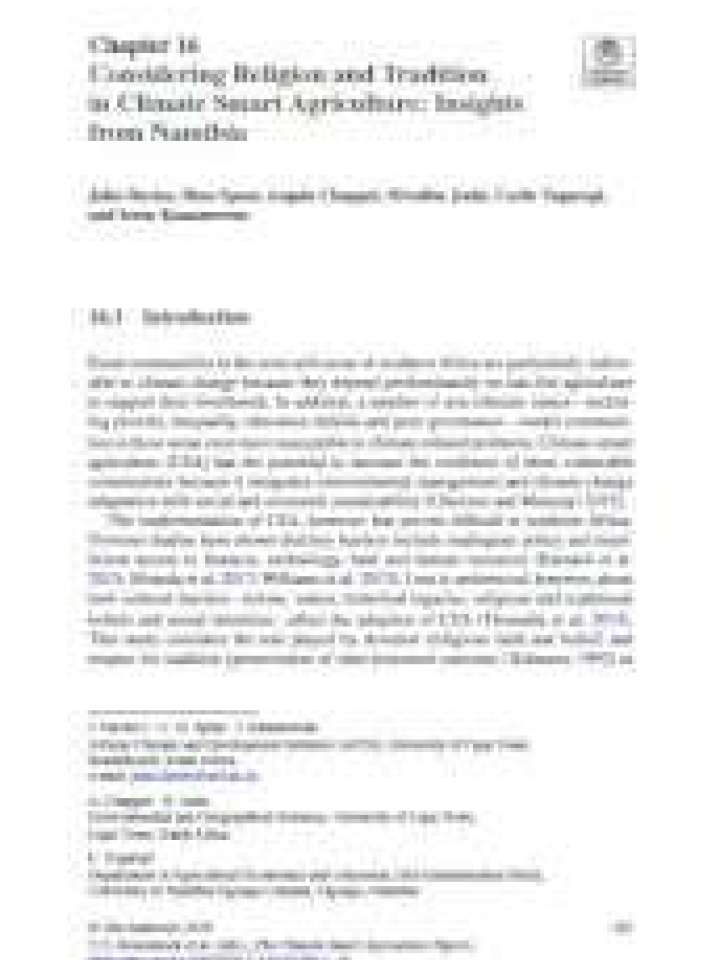Considering religion and tradition in climate smart agriculture: insights from Namibia
This study considers the role played by devotion (religious faith and belief) and respect for tradition (preservation of time-honoured customs) climate smart agriculture (CSA) adoption in Namibia.
CSA has the potential to increase the resilience of vulnerable communities because it integrates environmental management and climate-change adaptation with social and economic sustainability.
The implementation of CSA, however, has proven difficult in southern Africa. Previous studies have shown that key barriers include inadequate policy and insufficient access to finances, technology, land and human resources. Less is understood, however, about how cultural barriers—norms, values, historical legacies, religious and traditional beliefs and social identities—affect the adoption of CSA.
Explore further
